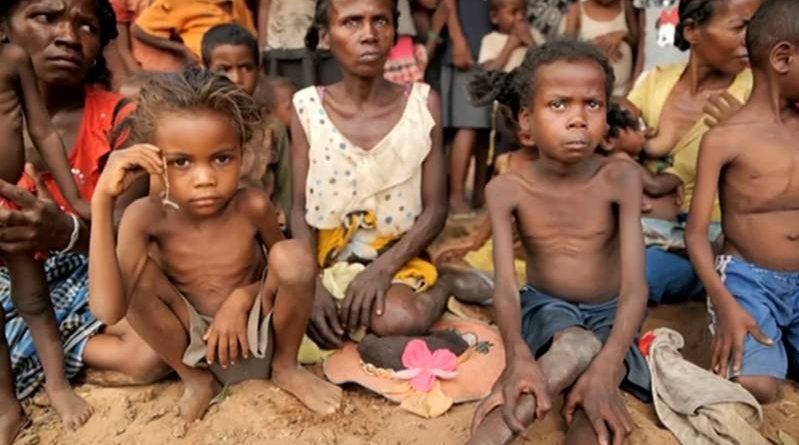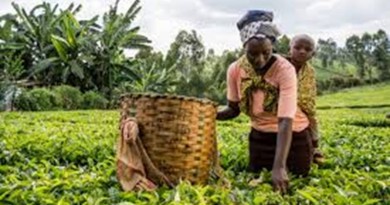Food insecurity and malnutrition in West and Central Africa is at a 10year high
A new study reveals that acute food insecurity in West and Central Africa is on track to reach a 10-year high by June of this year. Worryingly, food insecurity is spreading into coastal nations, and Burkina Faso and Mali’s conflict-affected regions are experiencing catastrophic levels of hunger. 45,000 people, including 42,000 in Burkina Faso and 2,500 in Mali, are expected to endure catastrophic (phase 5) levels of hunger for the first time in the Sahel.
According to the March 2023 Cadre Harmonisé food security analysis, 48 million people will not have regular access to safe and nutritious food during the June–August 2023 lean season, a fourfold increase in the previous five years. This is due to the combined effects of conflict, climate shocks, COVID-19, and high food prices.The findings also support a longer-term pattern of food insecurity spreading geographically throughout the area.
Chris Nikoi, the regional director for the WFP in Western Africa, described the deteriorating food security and nutrition situation as “just heartbreaking.” He continued, “There is a critical need for substantial investment in enhancing the resilience of communities and people to shocks while prioritizing local and long-term solutions to food production, transformation, and access for disadvantaged groups.
With 16.5 million children under 5 expected to experience acute malnutrition in 2023, including 4.8 million expected to experience the crippling severe form (SAM), the already dire nutritional situation for communities around the region is also deteriorating. Global acute malnutrition (GAM) has increased 83% from the average between 2015 and 2022. One of the main causes of the situation’s deterioration, in addition to the cost of a varied, nutritious, and healthy diet (especially for young children and women), is conflict and population displacement, which restrict access to vital social services (health, nutrition, WASH, and social protection) and have a negative impact on caregiving techniques. Security events rose by 79% between 2019 and 2023, displacing a significant amount of people and obstructing access to farmland and feed.
According to Marie-Pierre Poirier, regional director for UNICEF in West and Central Africa, “growing insecurity and conflict mean that vulnerability is increasing in the region, and it is getting harder to help communities in isolated areas.” “We are assisting governments in bolstering community and facility-level health systems to successfully detect and treat malnutrition while putting the emphasis on prevention,” the statement reads.
Despite increased rainfall in 2022, there is still a serious issue with access to and availability of food. Despite significant budgetary limitations and macroeconomic difficulties, the region continues to be net import dependent, and currency devaluation and high inflation are driving up food import costs in the region. Furthermore, there are worries that restrictions on transhumance mobility and large livestock densities in particular places will worsen pastoral and security circumstances.
According to Robert Guei, “The continued deterioration of the food and nutrition situation in West Africa and the Sahel is unacceptable; despite the rise in cereal production, access to food for the majority of the population remains difficult due to the disrupted functioning of markets due to civil unrest and high food prices.”
We must promptly and collectively address the underlying causes of this issue since this tendency is likely to worsen the situation with regard to food and nutrition. In order to attain food sovereignty in our region, it is time to take action to increase agricultural productivity, Guei continued.
UNICEF, FAO, OCHA, and the World Food Programme (WFP) reiterate their appeal to the private sector, development, and humanitarian partners to assist national governments in enhancing food security and nutrition in the region. This includes creating systems for food, health, water, sanitation, and hygiene as well as social protection programs that focus on nutrition and vulnerable populations including mothers and small children. In order to prevent and cure childhood acute malnutrition and to promote climate-smart programs that serve to lower the region’s high sensitivity to climate shocks and the risk of resource depletion, partnerships must be strengthened.
The food and nutrition crisis has a wide-ranging effect on how affected populations in the area, in places already experiencing humanitarian crises, and in all of the countries in West and Central Africa. Charles Bernimolin, the head of OCHA’s regional office for West and Central Africa, continued, “This calls for the collective deployment of multisectoral approaches based on the needs expressed by the population, putting west and central African people at the center.




